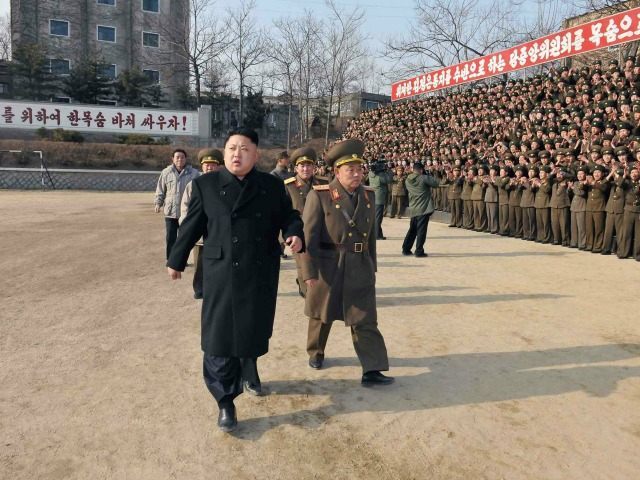Two shipments of chemical weapons from North Korea bound for a government agency in Syria were intercepted, according to a report produced by the United Nations Tuesday.
“The report by a panel of independent U.N. experts, which was submitted to the U.N. Security Council earlier this month and seen by Reuters on Monday, gave no details on when or where the interdictions occurred or what the shipments contained,” Reuters reported.
Reuters called the report “confidential,” and Breitbart News was unable to find the report on the UNSC website. The U.N. press office had no knowledge of the report.
“The panel is investigating reported prohibited chemical, ballistic missile and conventional arms cooperation between Syria and the DPRK (North Korea),” experts wrote in the 37-page report.
“Two member states interdicted shipments destined for Syria,” the report stated. “Another Member state informed the panel that it had reasons to believe that the goods were part of a [Korea Mining Development Trading Corporation] KOMID contract with Syria.”
The United Nations Security Council blacklisted KOMID in 2009. In 2016, the council also blacklisted two KOMID representatives who were in Syria, Reuters reported.
“The consignees were Syrian entities designated by the European Union and the United States as front companies for Syria’s Scientific Studies and Research Centre (SSRC), a Syrian entity identified by the Panel as cooperating with KOMID in previous prohibited item transfers,” the U.N. experts wrote.
SSRC has overseen the country’s chemical weapons program since the 1970s, according to Reuters.
“The U.N. experts said activities between Syria and North Korea they were investigating included cooperation on Syrian Scud missile programs and maintenance and repair of Syrian surface-to-air missiles air defense systems,” Reuters reported.
U.N. sanctions have been in place in North Korea since 2006 over its ballistic missile and nuclear programs. The U.N. Security Council has recently “ratcheted up the measures in response to five nuclear weapons tests and four long-range missile launches.”
In 2013, in a deal brokered by the U.S. and Russia, Syria agreed to destroy its chemical weapons, but diplomats and weapons inspectors have since argued that Syria has not complied and instead secretly developed a chemical weapons program.
The Organisation for the Prohibition of Chemical Weapons reports that the banned nerve agent sarin has been used at least twice during the 6-plus-year civil war in Syria and the use of chlorine as a weapon has been widespread.
The Syrian government has repeatedly denied using chemical weapons, but U.N. and U.S. intelligence have said they have ample evidence that the Assad regime was responsible for the attacks.
Russia has also been seen as complicit in Assad’s chemical weapons attacks.
In April, after the horrific chemical attack on innocent Syrian civilians, including children, the Associated Press quoted an unnamed “senior U.S. official” who said the United States government had concluded Russia had advance knowledge of Syria’s chemical weapons attack in the Idlib province.
The source also concluded Russia operated a drone that flew over the hospital where victims of the chemical attack were receiving treatment and might have been piloting the warplane that subsequently bombed the hospital.
“The official said the presence of the drone couldn’t have been a coincidence, and that Russia must have known the chemical weapons attack was coming and that victims were seeking treatment,” AP reported.

COMMENTS
Please let us know if you're having issues with commenting.